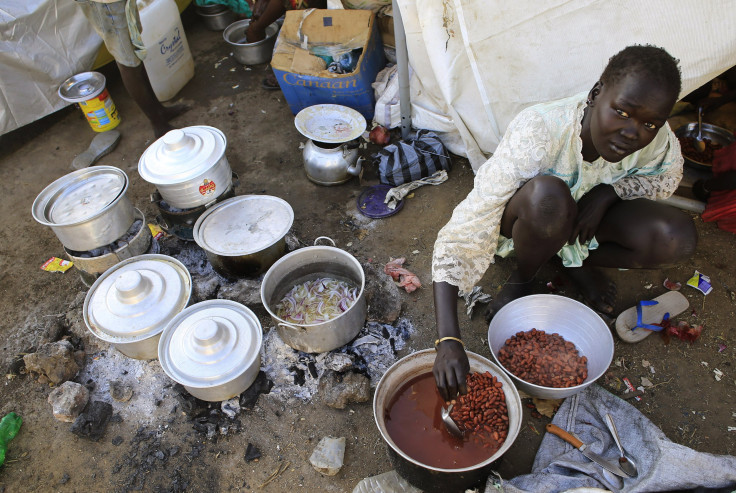U.N. To Double Its Peacekeeping Force In South Sudan, Amid Reports Of Mass Graves And Escalation In Violence; Government Forces Retake Key Town Bor

The United Nations Security Council, or UNSC, on Tuesday approved a proposal to send additional troops to South Sudan, nearly doubling the strength of its peacekeeping force in the world’s youngest nation, amid reports of mass graves and thousands of civilian deaths.
The U.N. vote to add about 6,000 international troops and police officers to the more than 7,600 forces already on the ground in South Sudan came hours after Navi Pillay, the UN high commissioner for human rights, expressed concerns about safety of civilians, following the discovery of at least two recent mass graves in the nation.
The U.N’s humanitarian coordinator in South Sudan also raised the death toll from the past 10-days of unrest to thousands, from the previously estimated hundreds.
"I think it's undeniable at this stage that there must have been thousands of people who have lost their lives," Toby Lanzer told the BBC's Newshour program.
"When I've looked at the hospitals in key towns and I've looked at the hospitals in the capital itself, the range of injuries, this is no longer a situation where we can merely say it's hundreds of people who've lost their lives," he said.
According to local media reports, the government on Tuesday announced that its military forces recaptured Bor, the capital of Jonglei state, from the rebels. Meanwhile, another key town, Bentiu, in the oil-producing state of Unity, bordering Sudan, continues to be under the control of rebels loyal to former vice president Riek Machar.
U.N. officials also confirmed the discovery of two mass graves -- one with 14 bodies and another with 20 bodies -- in Bentiu. The government spokesperson on Tuesday said the bodies discovered in the mass graves in Bentiu were of Dinka soldiers and blamed the rebel groups for the mass murders.
"Bentiu is currently under the control of the rebel leader Riek Machar -- we have nothing to do with that area & the mass killings #SouthSudan,” the government said in a Twitter statement.
The additional personnel will be deployed at U.N. bases where tens of thousands civilians have sought shelter from the violence, which erupted in the capital city Juba on Dec. 15 between the government forces and rebel forces.
However, U.N. Secretary-General Ban Ki-moon said after the vote that it would take some time to deploy additional personnel in the country and warned that "even with additional capabilities, we will not be able to protect every civilian in need in South Sudan."
The ethnic violence in South Sudan was triggered by a political conflict between President Salva Kiir, a leader from the majority ethnic group Dinka, and Machar, a Neur, which is the second-largest ethnic group in the nation, after the former ousted his deputy in July for allegedly plotting a coup.
Although both leaders claim that the conflict is political and not ethnic, the violence has divided the fragile nation along ethnic lines.
"Whatever the differences, nothing can justify the violence that has engulfed their young nation," Ban told the council after the vote, Reuters reported. "There is no military solution to this conflict. This is a political crisis which requires a peaceful, political solution."
South Sudan seceded from Sudan in 2011 under a peace agreement after decades of war.
© Copyright IBTimes 2025. All rights reserved.






















